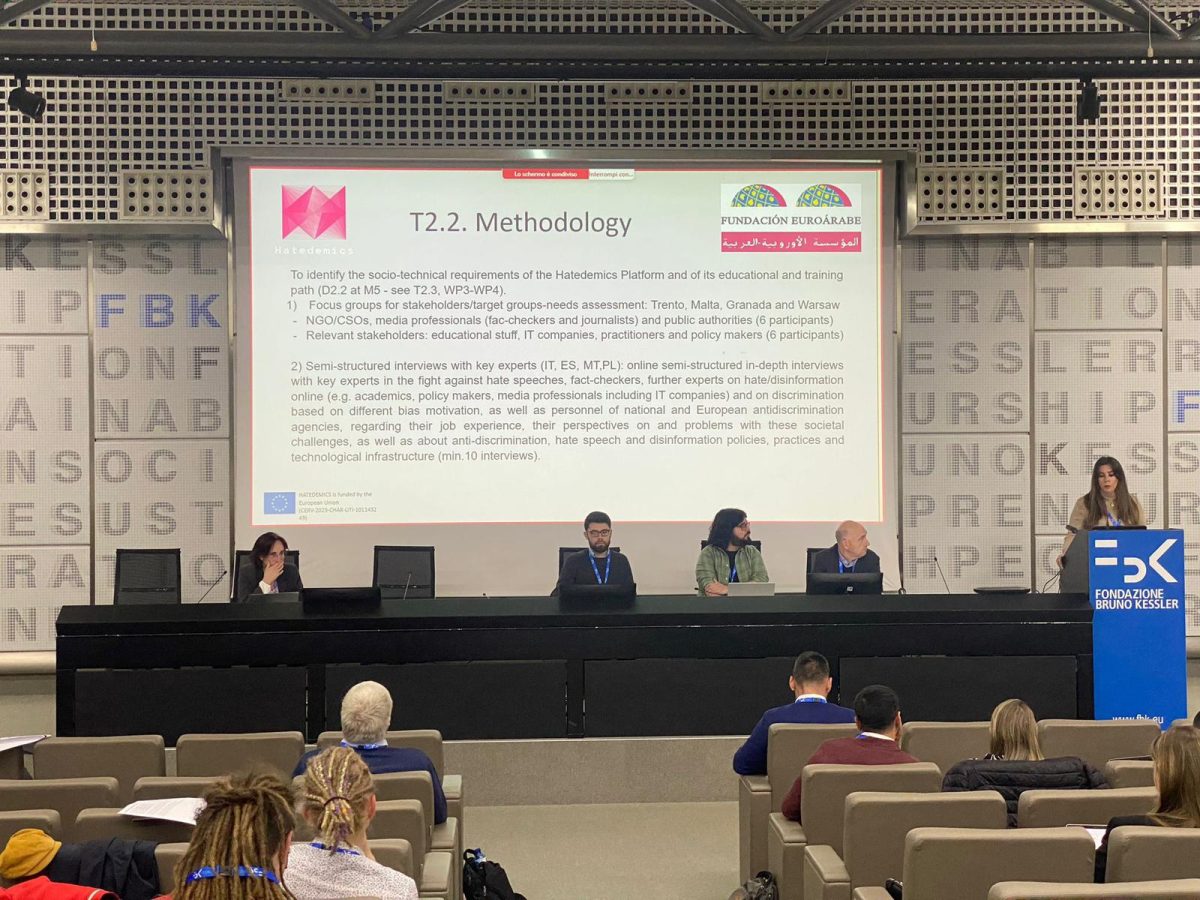The Andalusian Studies Centre (CENTRA), based in Seville, and the Euro-Arab Foundation for Higher Studies, based in Granada, have held a meeting at the headquarters of the latter to coordinate the latest aspects of the European project HATEDEMICS, which will unite them in the task of preventing and combating polarisation and the spread of racist, xenophobic and intolerant discourses and conspiracy theories through technologies based on Artificial Intelligence (AI).
The project, funded by the European Commission, will be coordinated by the Fondazione Bruno Kessler and has thirteen partners: the Euro-Arab Foundation, CENTRA and Maldita. es in Spain; Saher Europe (Estonia), European Association for Local Democracy (France); CESIE, the Fact-Checking Factory SRL and the Commune of Trento (Italy); Solidarity and Overseas SErvice and the Ministry of Home Affairs, Security, Reforms and Equality (Malta) and the Centre for Citizenship Education, the National Research Institute and the Association of Demagogues (Poland).
The Euro-Arab Foundation will lead the work package that will define the approach, the socio-technical requirements and the methodology to be used, considering both the current trends of hate speech and disinformation, online multi-target discrimination and the needs of the target groups of this project, NGOs and CSOs, policy makers, legal authorities, IT companies, journalists and fact-checkers, the academic and research sector and the general public using the Internet and social networks.
The Andalusian Studies Centre, for its part, will be in charge of the report that will form the basis of the future HATEDEMICS Platform with which to prevent, tackle and denounce multi-target discrimination, online hate and misinformation, with updated, specific and effective indicators for better management of hate speech phenomena, applying the results of focus groups and semi-structured interviews, with recommendations for transferability and adaptability for the promotion of alternative narratives.
One of the main goals of HATEDEMICS is to improve the capacities and critical thinking of the target groups with reliable AI tools, combined with advanced data collection methods, will allow for more tailored online interventions resulting in more efficient and effective efforts of both professionals and volunteers. The vision is to maintain fairness and balance by applying appropriate measures and ensuring compliance with legal and ethical standards.
The launch of the HATEDEMICS project is scheduled to take place on 17 April in the city of Trento with a kick-off meeting attended by all partners.


















